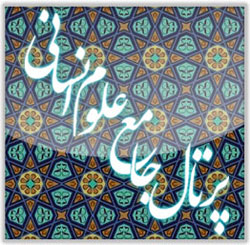تحلیل تجارب معرفتی در متون نثر عرفانی (با تکیه بر نورالعلوم، النور، تمهیدات)
کلمات کلیدی:
تجارب, معرفت, نثر, عرفان, النور, تمهیدات, نورالعلومچکیده
تجارب عرفانی، نوعی آگاهی بیواسطه از حضور خداوند یا حقیقت متعالی است که عارف از طریق روشهایی مانند: مراقبه، خلوت، ذکر، ریاضت و عشق الهی به آن دست مییابد. این تجارب با رها شدن از وابستگیهای دنیوی و تمرکز درونی حاصل میشود و به حالتی منجر میشود که عارف احساس وحدت با جهان را تجربه میکند. عامل اصلی در وقوع این تجارب رفع حجابهای جسمانی از مقابل دید عارف است. از "توصیف ناپذیری"، "حالت انفعالی"، "كیفیت معرفتی" و "زودگذری" به عنوان ویژگی مشترك اغلب این تجارب نام برده شده است و با اینکه توصیفناپذیرند، اما نشانههای آنها در رفتار، گفتار و آثار عارفان آشکار است. تغییر نگاه به زندگی، آرامش بیشتر و فاصله گرفتن از مادیات از نتایج این تجربههاست. هر یك از عارفان در جایگاه "تجربهگر" تحت تأثیر غلبة یکی از نقشهای زبان به صورت مستقیم یا غیرمستقیم به بازنمایی تجارب عرفانی خود در حالات مختلفی اعم از بیداری، خواب و حالتی بین خواب و بیداری پرداخته اند. این پژوهش با روش توصیفی – تحلیلی و با تكیه بر نورالعلوم؛ النور؛ تمهیدات عینالقضات صورت پذیرفته است که نگارنده با بررسی «ماهیت تجارب عرفانی» و «راههای شناخت تجارب معرفتی» به ترسیم فضای تجارب و همراه ساختن مخاطب با جریان روایت میپردازد.









